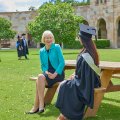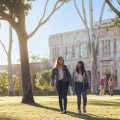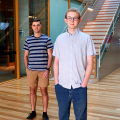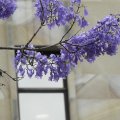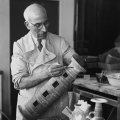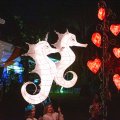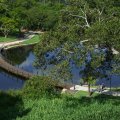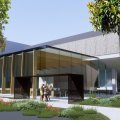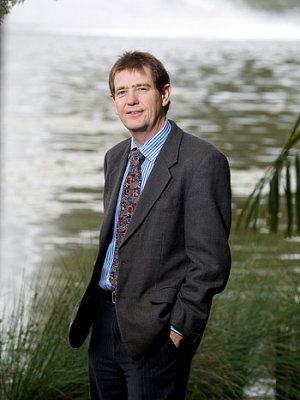
The University of Queensland is celebrating World Environment Day – June 5 – with the launch of a new sustainability website.
Providing information on topics as diverse as climate change experiments and nesting boxes for native birds, the site is a one-stop-shop for information about how UQ is embedding sustainability into all research, teaching and operational activities.
Geoff Dennis, Deputy Director, Property and Facilities, said the website gathered key details about each project into a central resource, highlighting the range and quantity of energy-saving initiatives under way at UQ.
“UQ is dedicated to embedding sustainability in all aspects of campus life,” he said.
“This website provides a clear snapshot of how UQ is rising to the green challenge.”
Campus sustainability initiatives include a range of biodiversity projects, including developing an environmental area at The Lakes precinct at St Lucia and planting native species in the bushland areas at UQ’s experimental mine at Indooroopilly.
Mr Dennis said UQ aimed to incorporate a range of sustainable features into buildings and grounds to continually improve its environmental performance.
The Sir Llew Edwards Building, UQ’s newest smart building, has sustainable design features including water harvesting, solar panels and an innovative shading system.
The University also is making serious and detailed efforts to reduce energy consumption. Lighting and air conditioning in lecture theatres are being automatically controlled to coincide with room bookings, staff are being urged to be vigilant about turning off computers and other equipment overnight, and energy efficient lighting has been installed around the campuses.
Water-saving initiatives are in place, with the St Lucia campus reducing its water consumption by 48 percent since 2004.
“In 2009 the University began widening its already established environmental program to embed sustainability into its teaching and research programs and operational activities,” Mr Dennis said.
“To achieve this, UQ is developing a carbon strategy to identify, prioritise, and guide progress.”
The website is not just home to information on UQ’s operational sustainability efforts; it also contains details on research, collaborative projects and study programs.
Sustainability is an integral part of the University’s research in many discipline areas, including energy, business, mining, food production, environment, urban planning and development, safe water, architecture and construction.
The newly established Global Change Institute, for example, is focusing on population growth, climate change and technological innovation.
UQ also aims to develop and enhance mutually supportive relationships in sustainability with the wider community, industry and government. In 2009, the University signed the Universitas 21 Sustainability Statement and the Talloires Declaration of Sustainability in Higher Education.
A range of undergraduate and postgraduate sustainability-focused courses are available at UQ. Programs cover areas such as environmental management, environmental tourism, mineral resources and corporate sustainability.
Staff and students attended the Environment Day event and website launch, held at the Institute for Molecular Bioscience on the St Lucia campus.
Vice-Chancellor Professor Paul Greenfield gave a keynote address on UQ’s sustainability program, while Professor Paul Meredith, from the Centre for Organic Photonics and Electronics, discussed renewable energy projects currently under way.
Green Office Program winners were presented with their awards at the event.
Media: Geoff Dennis (07 3365 1452, g.dennis@pf.uq.edu.au), Kay Ollett (07 3365 2076, k.ollett@pf.uq.edu.au) or Penny Robinson at UQ Communications (07 3365 9723, penny.robinson@uq.edu.au)

